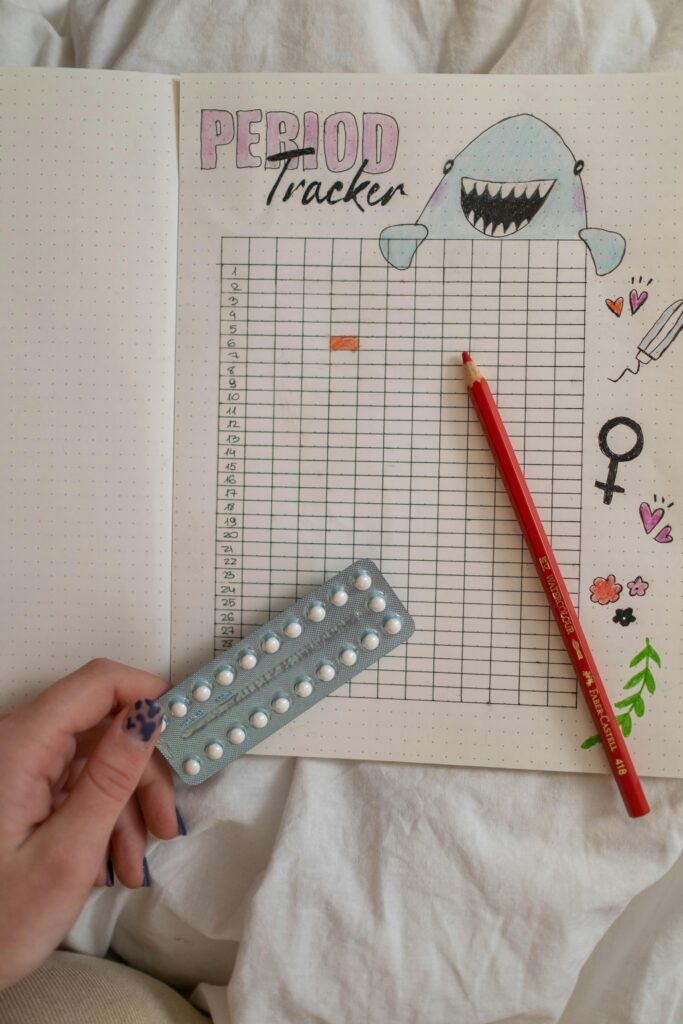Hormonal Birth Control: Because Who Needs a Stable Mood Anyway?
Ah yes, hormonal birth control—the little magic pill that offers freedom from surprise pregnancies and, as a bonus, throws in mood swings, anxiety, and maybe a sprinkle of depression. Who needs emotional stability when you can have fool proof contraception, right? It’s not like anyone has ever asked, “Could manipulating hormones possibly lead to birth control mental illness?” Spoiler: It can. The link between hormonal birth control and mental health issues like depression and anxiety has been studied for years but often downplayed. After all, better safe than sane, right?
In this article, we’ll dive into the studies exploring this charming connection and, for those not too keen on spiraling into mental illness, suggest some healthier alternatives.

Forms of Medically Prescribed Hormonal Contraceptives
- IUDs (Intrauterine Devices): These little wonders release hormones like progestin and estrogen, preventing ovulation and thickening cervical mucus (gross, but effective). They’re convenient and reduce menstrual bleeding and cramps—what’s not to love? Oh, wait. Some studies suggest a possible link between hormonal IUDs and mental health issues, like anxiety and depression. A small price to pay for never needing to remember a pill, right?
- Copper IUD: For those who want to avoid hormones, copper IUDs are a non-hormonal option. The copper creates a sperm-hostile environment. Over 99% effective and lasts up to 10 years—no hormones, no problem…except for maybe heavier periods.
- Combined Pill: This classic pill contains both estrogen and progestin. It can regulate your cycle, but hey, it can also deregulate your emotions. Neat, huh?
- Progestogen-Only Pill (Mini Pill): Fewer hormones, fewer worries, right? Wrong. It still has its fair share of emotional side effects, because why not?
- Vaginal Ring (NuvaRing): A short-term solution that stops sperm from reaching the egg. Convenient but comes with its own hormonal baggage.
- Skin Patch (Xulane): Stick it on, forget it’s there for three weeks, but don’t forget it’s still pumping hormones into your system.
- Injections (Depo-Provera): Long-lasting but short-acting hormonal birth control that prevents your ovaries from releasing eggs. Side effects may include mood swings and, well, you know the drill by now.
Birth Control and Mental Illness Caused by Stress
Because mood swings weren’t enough, hormonal birth control might be messing with your therapy too. A 2023 study in Psychopharmacology found that women on oral contraceptives under stress had lower success rates in one-session exposure therapy. They were divided into two groups: one on the pill and one on a placebo. After a stressful situation and therapy, those on the pill didn’t respond as well to treatment. So if you’re using exposure therapy to manage anxiety, birth control might be your unexpected nemesis. Because who doesn’t want their contraception sabotaging their mental health progress?
Don’t Let Your Daughters Make the Same Mistake
Adolescence is tough enough without throwing hormonal birth control into the mix. But apparently, some bright ideas involve giving teenage girls oral contraceptives, increasing their chances of developing major depressive disorder later in life. According to research published in JAMA Psychiatry, girls on oral contraceptives during their teen years are at a higher risk of being prescribed antidepressants as adults. Because, clearly, surviving high school wasn’t challenging enough already. It’s a delicate time for brain development, and hormonal manipulation could have lasting effects on mental health. But hey, at least it prevents surprise pregnancies, right?
Try Not to Fall in Love While on Birth Control
Hormonal birth control does more than stop pregnancies—it can also tinker with how you pick a partner. Typically, during your fertile phase, you’re more likely to be drawn to men with masculine features—strong jawlines, deep voices, and assertiveness. Thank estrogen for that. But when you’re on the pill, those hormones stay steady, and so do your preferences. Research shows that women on hormonal contraception are often attracted to men with less masculine traits—softer features and more cooperative behavior.
Now, this might seem like no big deal, but it could lead to long-term consequences. If you pick a partner while on birth control, you might find your preferences change when you go off the pill. One study found that women who met their partners while on birth control were less satisfied with their relationship once they stopped using it. These hormonal shifts can influence not only your partner choices but also your overall relationship satisfaction.
Oh, and don’t forget the sexual desire aspect. Another study found that women who chose their partners while on birth control experienced different levels of sexual desire during pregnancy compared to those who weren’t on the pill when they started their relationships. So, your contraception might also be influencing how much you desire your partner in the long run. Fun, right?
In short, hormonal birth control could be impacting way more than just your reproductive system—it might be messing with your relationship and attraction. So, if you suddenly feel less spark after ditching the pill, it’s not just in your head. Your hormones might have had a hand in your love life too.

Non-Hormonal Contraceptive Options: Because Who Needs More Hormones
If hormonal birth control isn’t your cup of tea—because, let’s be real, who wants to juggle mood swings, partner confusion, and potential mental health meltdowns?—there are plenty of non-hormonal alternatives that can keep you baby-free without turning your emotional life into a rollercoaster. Here are some options that allow you to stay in control without the hormonal circus:
- Copper IUD: This little device is like the bouncer at the club of your uterus. It doesn’t contain hormones and is over 99% effective for up to 10 years. The copper creates a hostile environment for sperm, preventing them from fertilizing an egg. Plus, it can also make your periods heavier, which is a lovely bonus for some!
- Condoms: Ah yes, the classic option that’s been around since before your mom was in high school. Condoms are a barrier method that prevents sperm from entering the uterus. They also protect against sexually transmitted infections (STIs), so you get double the benefits. Remember to keep a few in your nightstand, just in case!
- Diaphragms: Think of a diaphragm as your personal bodyguard for the cervix. This soft, silicone cup is inserted before intercourse and works by blocking sperm from entering the uterus. It’s used with spermicide for maximum effect, so you’ll need to plan ahead.
- Fertility Awareness Methods (FAM): If you’re the scientific type, FAM involves tracking your menstrual cycle to determine fertile days. This can include monitoring your basal body temperature and observing changes in cervical mucus. It’s natural, but requires dedication, patience, and a dash of math.
- Withdrawal Method: Also known as “pulling out,” this method relies on your partner’s timing skills. While it’s better than nothing, it’s not the most reliable, as pre-ejaculate fluid can contain sperm.
- Spermicide: This chemical kills sperm and is available in various forms, like gels, foams, or films. It’s usually used in conjunction with other barrier methods for better efficacy. Just remember, it can mess with your pH balance, so tread carefully.
While these alternatives might not come with the same level of convenience as popping a pill, they can help you take control of your reproductive health without the potential emotional chaos of hormonal birth control. Who knew staying baby-free could be so varied?
If you’re interested in exploring these options further, consult with a healthcare provider to determine what works best for you—because no one should navigate this maze alone!
Conclusion
Hormonal birth control may be convenient, but it comes with strings attached. From messing with your mood to altering who you’re attracted to, the side effects extend beyond the physical. If you’re feeling off, or maybe even wondering why you’re not quite as into your partner anymore, it could be worth reconsidering whether the pill is doing more harm than good. Your mental health—and maybe even your love life—might thank you.
References:
https://www.ncbi.nlm.nih.gov/pmc/articles/PMC8363127/
https://jamanetwork.com/journals/jamapsychiatry/fullarticle/2751923
https://www.ncbi.nlm.nih.gov/pmc/articles/PMC9291927/
https://www.ncbi.nlm.nih.gov/pmc/articles/PMC5050240/#:~:text=Thus%2C%20if%20a%20woman’s%20hormonal,match%20her%20preferences%20as%20closely.
https://pubmed.ncbi.nlm.nih.gov/26704416/

Recent Comments